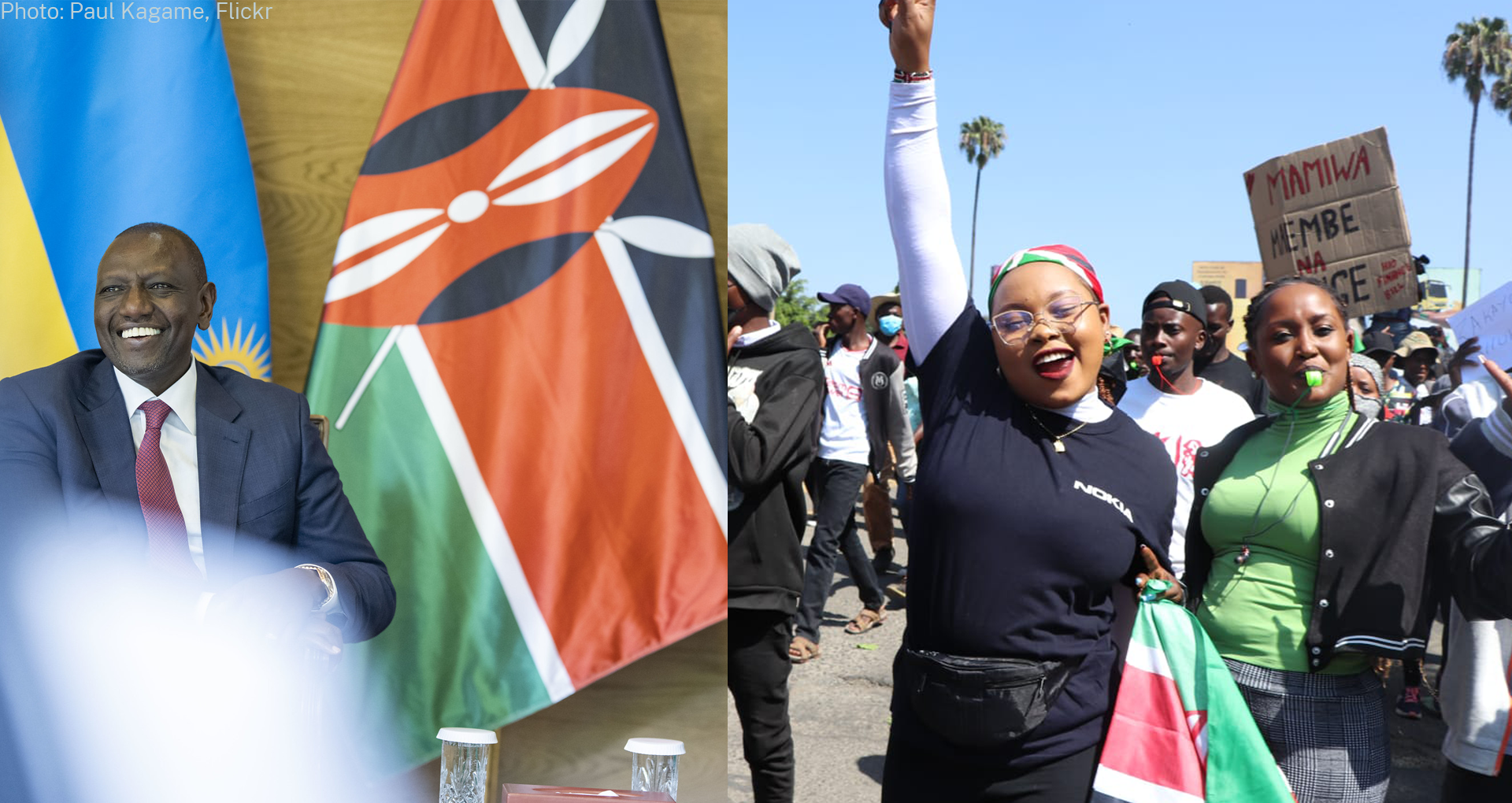By IBON Africa /
Nairobi, Kenya, June 26, 2024 – Kenyan President William Ruto withdrew the controversial finance bill 2024 amid mass protests that swept the country which reportedly left tens of people dead. The anti-tax demonstrations rocked 35 of Kenya’s 47 counties and culminated in the taking over and torching of a section of the National Parliament building by the protestors on 25th June 2024, an unprecedented incident.
“Having reflected on the continuing conversation regarding the content of the finance bill 2024, and listening keenly to the people of Kenya who have said loudly that they want nothing to do with this […] I concede, and therefore I will not sign the 2024 finance bill,” Ruto said during a presser on Wednesday evening, 26th June 2024.
The President backed down after previously issuing a very insensitive statement calling protestors treasonous criminals and praising police snipers for killing and maiming Kenyans. The President went ahead to deploy the military into the streets of Nairobi, a move that was challenged by both civil society and the Law Society of Kenya.
Kenyans consider the President’s action to withdraw the controversial bill too little too late. They ask whether he had to wait until people were killed and property destroyed when they had expressed their dissatisfaction with sections of the bill during the public participation stage.
The Kenya Finance Bill protest, known by the movement’s hashtags #RejectFinanceBill2024 and #OccupyParliament gained attention from young people on social media. Young activists, raising their concerns especially on X (Twitter), Facebook and TikTok, initially protested against over taxation particularly on online content creators, the additional 16% VAT on bread, an increase in taxation on mobile phone and bank transfers, and the insensitive subjection of diapers and sanitary towels to an eco levy.
After the first protest on Monday, 18th of June, the president and his party MPs called for a presser where they announced a draft of changes in the Finance Bill. The amendments dropped the 16% VAT on bread, the increase in taxation on both mobile money and bank transfers, the eco levy on locally manufactured diapers and sanitary towels, the motor vehicle annual tax, the VAT on transportation of sugarcane from the farms to the milling factories, and the excise duty on table eggs, onions, and potatoes, among others.
Even with these amendments, Kenyans demanded for more changes especially on sensitive issues of taxing freehold land and the granting of surveillance powers to the Kenya Revenue Authority. The government remained adamant and arrogantly issued threats against protesters. This made Kenyan people unite even more against the oppressive regime that has already captured the parliament.
Kenyans united for a great course to reclaim their sovereignty in protests that united different tribes and political persuasions. Doctors offered medical services to protesters during demonstrations, psychologists offered psycho-social support to victims of police violence. Lawyers were accompanying the arrested protesters to police stations, with Kenyans strongly asserting the rejection of the controversial bill.
While this is a chronicle of the events that led to storming and partially torching of parliament, behind the bill was the International Monetary Fund (IMF). It fuelled the developments by influencing the National Treasury on drafting the bill to fit their interests. Indeed, as history has shown, the IMF never puts out any fires, it starts them.
IBON Africa stands with the brave assertions of the Kenyan people. It is deeply concerned over the lives lost during demonstrations, as well as the Githurai Massacre on the night of the 25th of June where it is alleged that hundreds of bodies were recovered. We call for the government of Kenya to stop killing peaceful protesters, abducting and torturing human rights activists and shrinking the civic space. Indeed, sovereignty of the people is key in a democratic process. IBON Africa extends its support to the people of Kenya for upholding their rightful place and fiercely engaging in shaping their governance system and resisting the oppressive system of the current administration.


